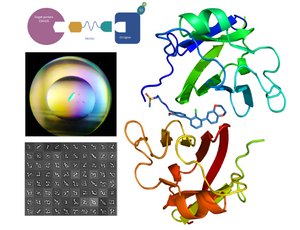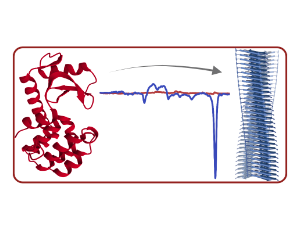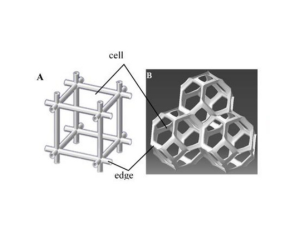
Pursuant to § 7 sections 1 and 3 of Resolution No. 61/X/2022 of the Senate of the Jagiellonian University of 26 September 2022 on: the rules of recruitment for the Doctoral School of Exact and Natural Sciences at the Jagiellonian University in the academic year 2023/2024, the Director of the Doctoral School of Exact and Natural Sciences announces a competition for one doctoral student with a scholarship financed from the research project funds as part of the PhD study programme Chemistry.
Within the OPUS 22 project entitled “Impact of the CDK4/6-targeted degradation by PROTACs on immune checkpoint signaling in cancer”, the project manager, Katarzyna Magiera-Mularz, PhD offers an opportunity to complete the doctorates in the following area (title): Characterization of degradation mechanism of CDK4 and CDK6 cell cycle kinases by PROTACs as potential antitumor drugs in cancer therapy.
After the interviews and the evaluation of the candidates, the Chairman of the committee presents a report to the Director containing a list of candidates recommended for admission to the school as part of the research project.
Project description:
Modern oncology is founded on five treatment pillars: surgery, radiotherapy, chemotherapy, targeted treatments, and immunotherapy. The last two methods only recently joined the repertoire of personalized therapies, with the immunotherapy being the newest addition. Immunotherapy represents one of the major breakthroughs in the treatment of cancer.
Deregulated cell cycle progression is a hallmark of human cancer, and targeting cyclin-dependent kinases (CDK4/6 proteins) to block cell proliferation has been validated as an effective anti-cancer therapy. CDK4/6 targeting is now under evaluation in a large number of clinical trials, both as single agents as well as in combination with other modalities. Therefore, it is of paramount importance to obtain a better understanding of the mechanisms behind their anti-tumor activity. Our research proposal addresses these timely and important issues of the mechanism of the involvement of the CDK4/6 kinases and PD-1/PD-L1 in tumorigenesis.
The research objective of our project is to characterize the mechanism of degradation of CDK4 and CDK6 cell cycle kinases by PROTACs - small-molecule degrades capable of inducing selective degradation of target proteins. In particular, we are interested in studying how these CDK4/6 PROTACS modulate the tumor immune microenvironment and synergize with the Immune Checkpoint Blockade (ICB)-induced responses.
Candidate’s profile:
- knowledge of the basics laboratory t knowledge in the field of biochemistry and molecular biology, with particular focus on working with the expression and purification of proteins
- M.Sc. degree in the field of molecular biology, biochemistry, and/or chemistry,
- interest in medicinal and organic chemistry,
- experience in working with crystallization of the proteins or/and cryo-EM technique is
- willingness to take on challenges and pursue independent, creative work,
- interest in conducting scientific work and commitment to the project,
- readiness to undertake and support teamwork,
- at least good knowledge of English (min. B1+).
Schedule of the competition:
- Announcement on the School's website (the latest): 29.05.2023
- Opening of the competition (means: opening admission in the Online Application System): 12.06.2023
- Application submission deadline: (means: closing the Online Application System): 21.06.2023
- Entrance exams: 5-11.07.2023
- Announcement of results: 13.07.2023
- Enrolment: 14-20.07.2023
- Enrollment (reserve list): 21-26.07.2023
Detailed terms and procedures of admission - tailored to the Chemistry PhD study programme according to the current Recruitment rules for the 2023/2024 academic year.
Application documents for PhD study programme Chemistry
Additional application documents and resulting from the specificity of the research project:
- transcript of records (B.Sc. and M.Sc. studies)
- average of grades obtained by the candidate (calculated in accordance with the regulations of the university that issued the diploma)
Please upload your application documents into the Online Application System (irk.uj.edu.pl).
Documents required for entry within PhD study programme Chemistry.
In particularly justified cases, at the request of the Co-ordinator of the Education Programme, on the basis of a written justification submitted by the Candidate to Doctoral School, the Director of the Doctoral School may waive the requirement to submit an apostille or legalize university diplomas or other documents.
In the event of exposure to harmful, noxious or hazardous factors, the applicant will, at the time of registration, be referred for a medical examination by an occupational medicine physician. The candidate shall be obliged to deliver, within the time limit set by the programme manager, a medical certificate confirming the absence of contraindications to take up education (applies only to some PhD study programmes).
Higher education diplomas awarded abroad should:
- bear an apostille clause if the issuing country is covered by the Convention abolishing the requirement legalisation for foreign public documents, done at The Hague on 5 October 1961 (Journal of Laws of 2005, No. 112, item 938) or
- be subjected to legalisation, in other cases.
Any document submitted in a language other than Polish or English must be accompanied by a certified translation into Polish or English.
IMPORTANT:
A person admitted to the doctoral school begin education and acquire doctoral student rights upon taking the oath.



